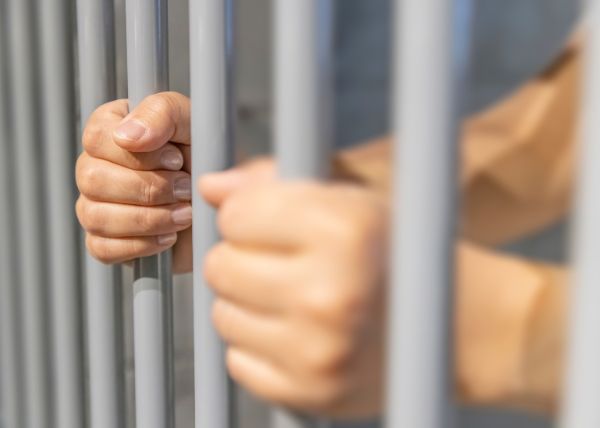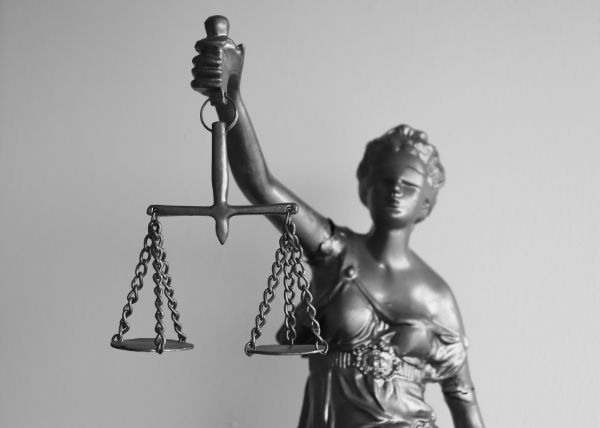
Call Now For A Free Consultation:

Call Now For A Free Consultation:

If you or a loved one has experienced abuse or mistreatment while in jail, you may feel helpless and unsure of where to turn. That's where Justin Palmer Law Group comes in. As a dedicated jail abuse lawyer, Justin Palmer is committed to fighting for justice and seeking compensation for those who have been wronged while in custody. In this article, we will explore the important role of a jail abuse lawyer and how Justin Palmer Law Group can help you navigate the legal system and fight for your rights.
Jail abuse refers to the mistreatment of inmates by prison staff, other inmates, or through systemic neglect within the correctional facility. This abuse can take various forms, each with severe physical and psychological impacts on the victims. Understanding the different types of jail abuse is crucial in identifying and addressing these injustices.
Physical abuse includes any form of violence or unnecessary force inflicted on an inmate by correctional officers or other inmates. This can involve beatings, excessive use of restraints, improper use of tasers, or any other form of physical assault. The result is often severe injuries, both visible and internal, that can have long-lasting consequences on the victim’s health and well-being.
Psychological or emotional abuse encompasses actions that cause mental anguish or emotional distress to inmates. This can involve verbal harassment, threats, intimidation, isolation, and deliberate humiliation. The psychological trauma from such abuse can be as debilitating as physical injuries, leading to conditions such as anxiety, depression, and PTSD.
Sexual abuse in jails is a particularly heinous form of abuse and includes any unwanted sexual contact or advances by prison staff or other inmates. This can range from sexual harassment to rape. The power dynamics within correctional facilities often leave victims feeling powerless and ashamed, compounding their trauma.
Neglect occurs when prison staff fail to provide inmates with the basic necessities and medical care they are legally entitled to. This includes ignoring medical complaints, denying essential medications, providing inadequate nutrition, and failing to maintain sanitary living conditions. Neglect can lead to serious health complications and exacerbate existing medical conditions, posing significant risks to inmates’ lives.
Systemic abuse refers to the broader, institutionalized practices that result in the widespread mistreatment of inmates. This can include overcrowding, understaffing, inadequate training for prison staff, and policies that permit or ignore abusive behavior. Systemic abuse creates an environment where individual instances of abuse are more likely to occur and go unpunished.
At Justin Palmer Law Group, we are dedicated to fighting against all forms of jail abuse. We believe that every inmate has the right to be treated with dignity and respect, and we are committed to holding those responsible for abuse accountable for their actions. If you or a loved one has experienced jail abuse, our experienced legal team is here to help you seek justice and ensure your rights are protected.
Recognizing the signs of jail abuse is critical for ensuring the safety and well-being of inmates. Often, victims may be unable or afraid to report abuse, making it essential for family members, friends, and legal advocates to be vigilant. Here are some common indicators of jail abuse that should not be ignored:
Physical abuse often leaves visible marks or injuries on the victim’s body. Be alert to:
Psychological abuse can manifest in various emotional and behavioral changes. Watch for:
Sexual abuse is particularly traumatic and may have distinct signs, including:
Neglect can lead to severe health and safety issues. Look for:
Systemic abuse might be harder to spot but can be inferred through:
At Justin Palmer Law Group, we are dedicated to protecting the rights and dignity of inmates. If you suspect that a loved one is a victim of jail abuse, it is crucial to take immediate action. Our experienced team can help you investigate the situation, gather evidence, and pursue legal action to hold those responsible accountable. Your vigilance can make a significant difference in ensuring justice and improving conditions for those behind bars.

Inmates in California are entitled to specific legal rights that safeguard their dignity, health, and well-being while incarcerated. Understanding these rights is crucial for inmates, their families, and their advocates to ensure that they are not violated. Here are the fundamental legal rights of inmates in California:
Under the Eighth Amendment to the U.S. Constitution, inmates have the right to be free from cruel and unusual punishment. This includes protection against:
Inmates are entitled to necessary medical care and treatment. This right encompasses:
Prison authorities are obligated to ensure the safety and security of all inmates. This includes:
Inmates have the right to live in conditions that meet basic standards of health and hygiene, including:
Inmates are protected from discrimination based on race, color, religion, national origin, gender, disability, and other protected characteristics. This right includes:
Inmates have the right to access the legal system to challenge their conviction, conditions of confinement, or treatment. This includes:
Inmates have the right to maintain communication with the outside world, subject to reasonable restrictions. This includes:
At Justin Palmer Law Group, we are committed to protecting the rights of inmates and holding correctional facilities accountable for any violations. If you believe that your rights or the rights of a loved one have been violated while incarcerated, our experienced team is here to help.
At Justin Palmer Law Group, we understand the profound impact that police brutality can have on victims and their families. Our commitment is to provide comprehensive legal support and advocacy to ensure justice is served. Here’s how our experienced police brutality lawyers can help you:
We begin with a meticulous investigation of your case. Our team will collect all relevant evidence, including police reports, medical records, surveillance footage, and witness statements. We'll conduct thorough interviews with witnesses and any individuals involved in the incident to build a robust case, as well as work with experts in various fields, such as forensic analysis and medical experts, to strengthen your case.
We provide strong legal representation and advocacy throughout the entire process, including filing complaints with the appropriate authorities, such as internal affairs or civilian review boards, to initiate an investigation into the misconduct. We'll engage in negotiations with the responsible parties and their insurance companies to seek fair compensation for your injuries and suffering, and if a fair settlement cannot be reached, we are fully prepared to take your case to court. Our attorneys are experienced litigators who will vigorously advocate for your rights before a judge and jury.
Our primary goal is to protect your constitutional rights. We will pursue legal action against the officers and the police department involved, ensuring that those responsible are held accountable for their actions. We make sure that your case is handled with the utmost respect for due process and legal standards, safeguarding your rights at every stage.
Victims of police brutality are entitled to seek compensation for the harm they have suffered. We will work to secure compensation for medical bills, rehabilitation costs, and any future medical care related to the injuries sustained. We also work to secure compensation for lost wages, pain and suffering, and punitive damages.
We provide continuous support and guidance throughout the legal process. Our team will regularly update you on the progress of your case and explain any legal developments. We strive to address any questions or concerns you may have, ensuring that you fully understand your legal options. Ultimately, we recognize the emotional toll of police brutality and offer compassionate support, connecting you with resources if needed.
At Justin Palmer Law Group, we are dedicated to standing up for victims of police brutality and ensuring that justice is served. If you or a loved one has experienced police misconduct, contact us today for a confidential consultation.
Filing a jail abuse lawsuit is a crucial step in seeking justice for the mistreatment and abuse suffered while incarcerated. At Justin Palmer Law Group, we are dedicated to guiding you through this complex legal process to ensure that your rights are protected and that those responsible are held accountable. Here’s what you need to know about filing a jail abuse lawsuit:
At Justin Palmer Law Group, we are committed to fighting for justice on behalf of jail abuse victims. Filing a lawsuit can be a daunting process, but with our experienced team by your side, you can be confident that your case is in capable hands.
At Justin Palmer Law Group, we are dedicated to fighting against jail abuse and holding responsible parties accountable for their actions. Our team of experienced attorneys is committed to seeking justice on behalf of victims of abuse in correctional facilities. If you have been a victim of jail abuse, don't hesitate to contact us for a free consultation. We will guide you through the legal process, gather evidence to support your case, and advocate for your rights every step of the way. You deserve to be treated with dignity and respect, even in the most challenging circumstances. Let us help you seek the justice you deserve. Contact Justin Palmer Law Group today.
Jail abuse includes physical violence, sexual assault, psychological torment, and neglect by correctional officers or fellow inmates. It also covers systemic issues such as inadequate medical care, poor living conditions, and denial of basic human rights.
Signs of jail abuse can include unexplained injuries, sudden behavioral changes, fear of staff, poor hygiene, untreated medical conditions, and reports of mistreatment. Pay attention to any unusual or alarming changes during visits or communications.
If you suspect jail abuse, document any evidence, including injuries and communications with the inmate. Report the abuse to prison authorities and seek legal assistance from an experienced jail abuse lawyer to ensure the matter is properly investigated and addressed.
Yes, inmates can file grievances within the correctional facility and report abuse to external oversight bodies. However, the process can be challenging, so having legal representation can help ensure their complaints are taken seriously and addressed promptly.
Inmates have the right to be free from cruel and unusual punishment, receive adequate medical care, live in safe and sanitary conditions, access legal representation, and be protected from discrimination and abuse.
Victims of jail abuse can seek compensation for medical expenses, lost wages, pain and suffering, emotional distress, and punitive damages. The specific compensation will depend on the details of the case and the extent of the abuse.
The duration of a jail abuse case can vary significantly based on its complexity, the availability of evidence, and whether the case goes to trial or is settled out of court. It can take several months to several years to reach a resolution.
A jail abuse lawyer investigates the abuse, gathers evidence, files legal complaints, represents you in court, and negotiates settlements. They advocate for your rights and work to hold the responsible parties accountable.
Yes, many jail abuse cases are settled out of court through negotiations between the victim's attorney and the responsible parties. Settlements can provide compensation without the need for a lengthy trial.
Look for a lawyer with experience in jail abuse cases, a strong track record of successful outcomes, and a commitment to advocating for inmates' rights. A consultation can help you assess their expertise and approach to your case.
Attorney Advertising | Prior results do not guarantee a similar outcome. The information on this website is for general information purposes only. Nothing on this site should be taken as legal advice for any individual case or situation. This information is not intended to create, and receipt or viewing does not constitute, an attorney-client relationship. This site is protected by reCAPTCHA and the Google Privacy Policy and Terms of Service apply.